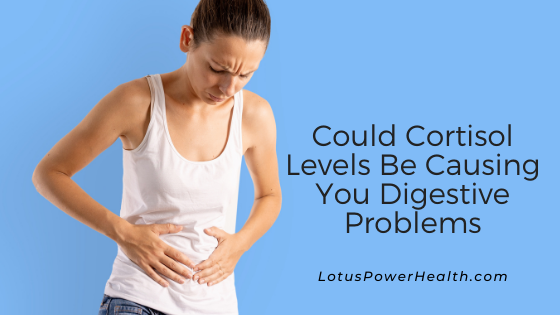Cortisol is the hormone that your body needs to function well. This hormone is an important factor during flight or fight situations. Your adrenal glands are responsible for the production of cortisol and too much or too little of this hormone can impact your health.
Cortisol helps metabolize glucose. It helps fight inflammation in your body. The amount of it in your body also impacts your blood pressure. This hormone is regulated within your body as needed.
If something goes wrong, then you either end up with too much or too little cortisol and this can cause digestive problems. Many people aren’t aware that their levels of cortisol could be the culprit behind why they’re experiencing these problems.
You might have an imbalance in your cortisol levels if you’ve gained weight, or if you’ve experienced menstrual cycle problems. Fatigue is also a clue, as is loss of muscle strength and abdominal pain.
If you have high cortisol, it puts your body at a greater risk for disease as well as digestive problems. The way cortisol is supposed to work occurs when you’re faced with a situation that makes you feel stressed.
Your cortisol kicks in and begins to make sure you’re ready to deal with whatever situation you’re facing. It makes your heart beat faster and it can make your survival instincts sharper.
After the situation is dealt with, your cortisol level is supposed to drop. If you have an imbalance, this doesn’t happen. So as a result, your cortisol keeps flooding your system, which causes more digestive problems.
This happens because your body has two main systems. One is a parasympathetic system and the other one is a sympathetic system. They’re supposed to work opposite each other, yet together, but are never both working at the same time.
And they’re both never quiet at the same time. They’re mean to work in tandem. One is on go, the other on stop. When cortisol levels get out of balance, this delicate stop-go pattern is thrown off.
That means the way your body uses glucose and how it helps with digestion is impacted. Your food absorption rate is changed. Without the right level of cortisol, your body doesn’t absorb the energy from food correctly.
The cortisol level that’s meant to help with digestion isn’t right. So your food doesn’t get digested properly or it’s digested too slow. This can lead to stomach upset, diarrhea, constipation, bloating, gas, and it can worse the symptoms of certain digestive diseases as well as cause ulcers.
If you’ve noticed a change in your digestion, are experiencing stomach pain after eating, or find yourself having to go to the restroom right after a meal, this can be a sign that your cortisol levels are out of alignment.
FREE 10-Day Optimised Health & Wellness Challenge
Discover the 5 steps of The Optimised Health Formula and how you can apply them to your life.

